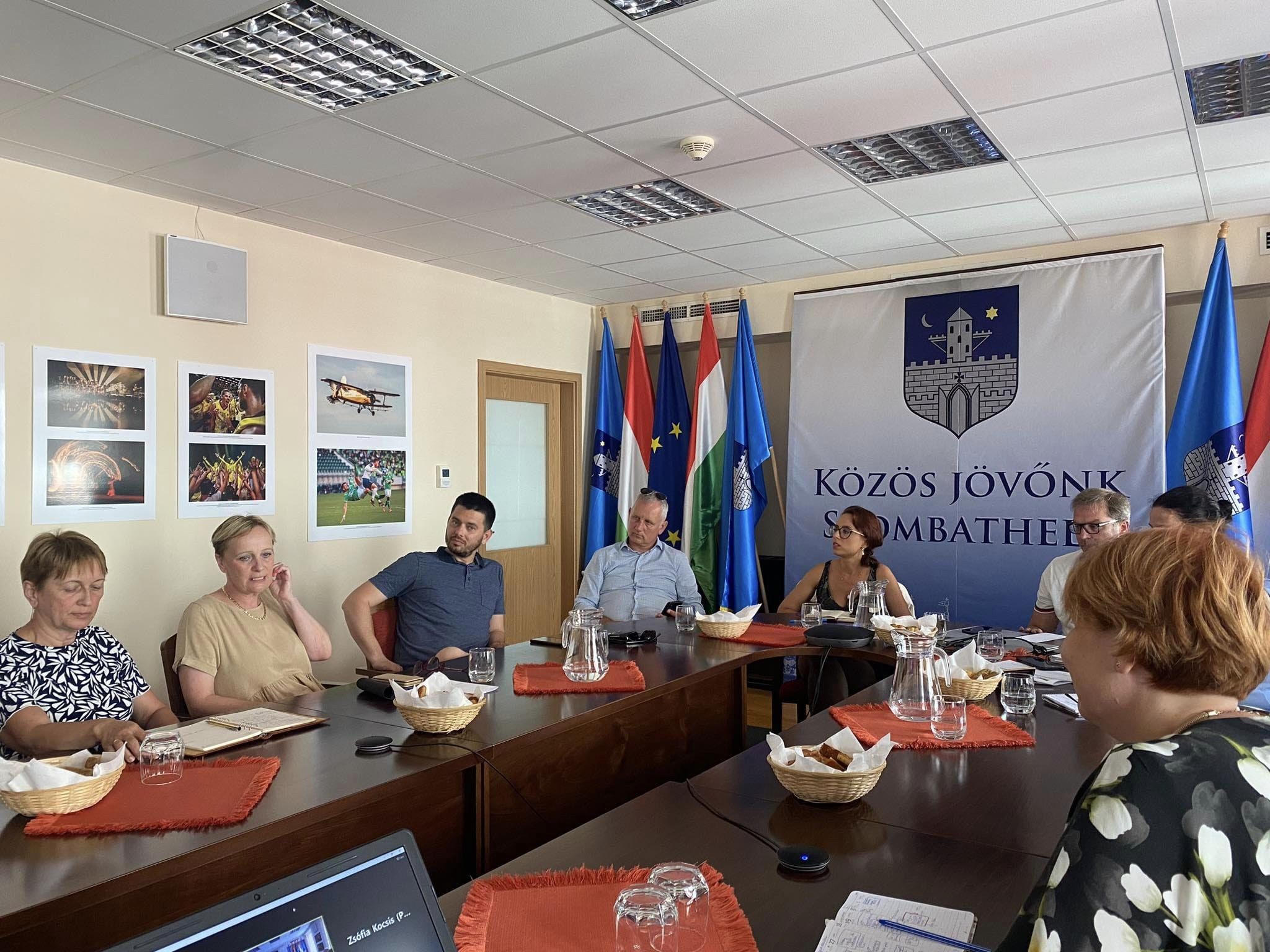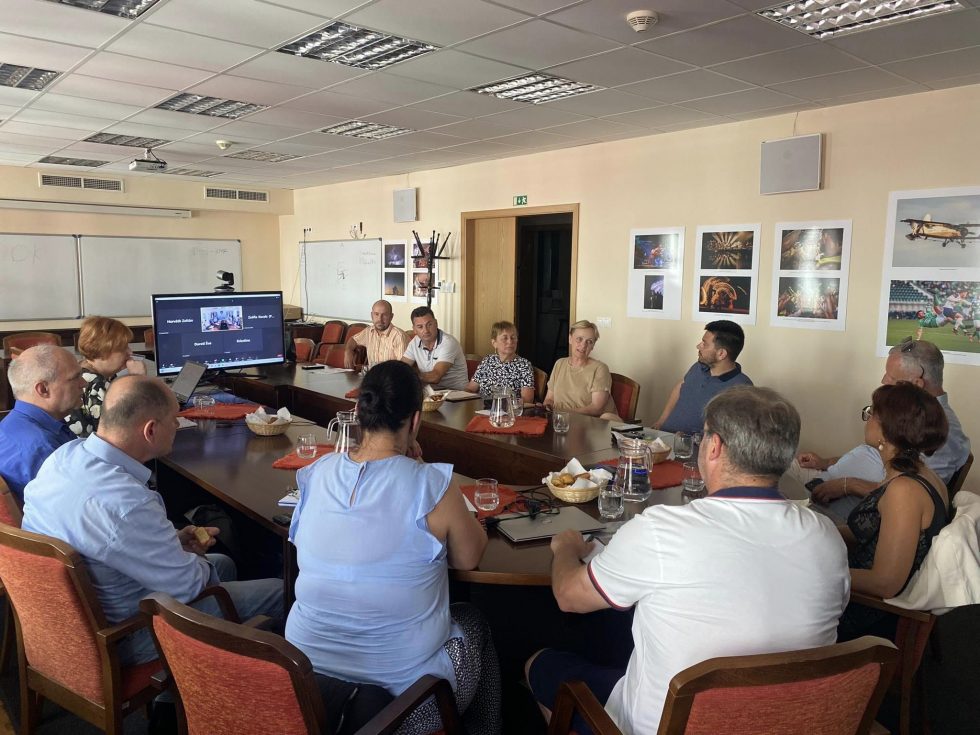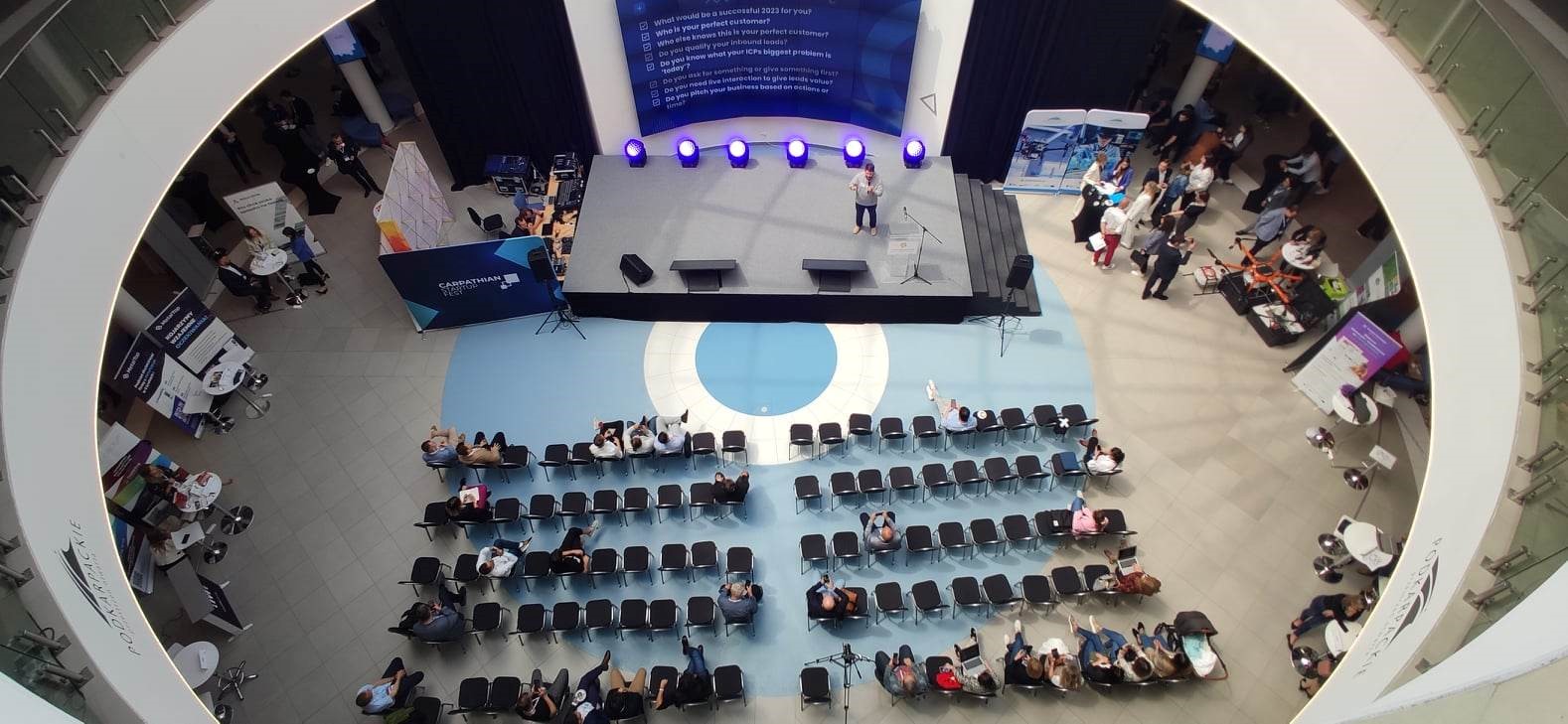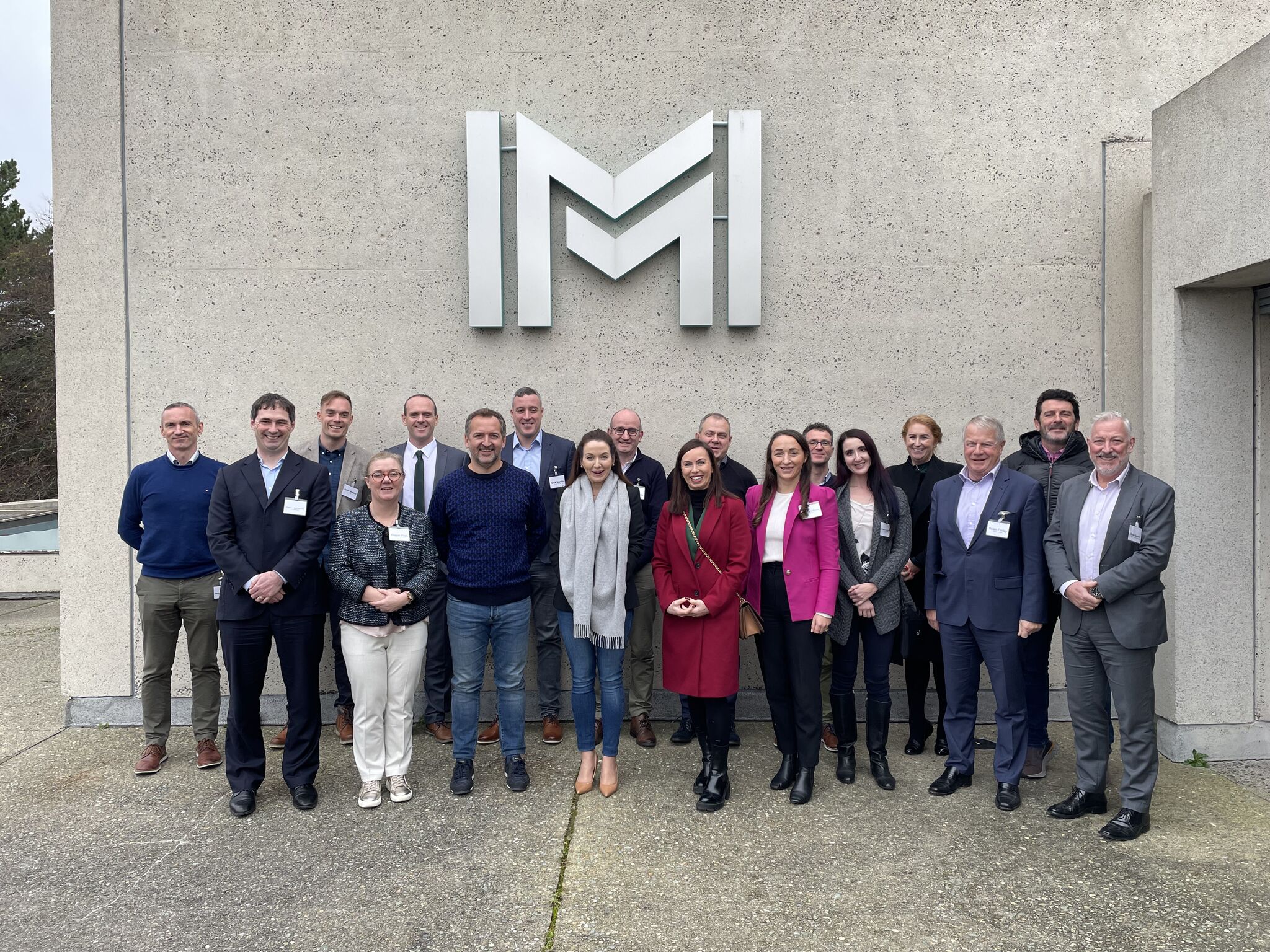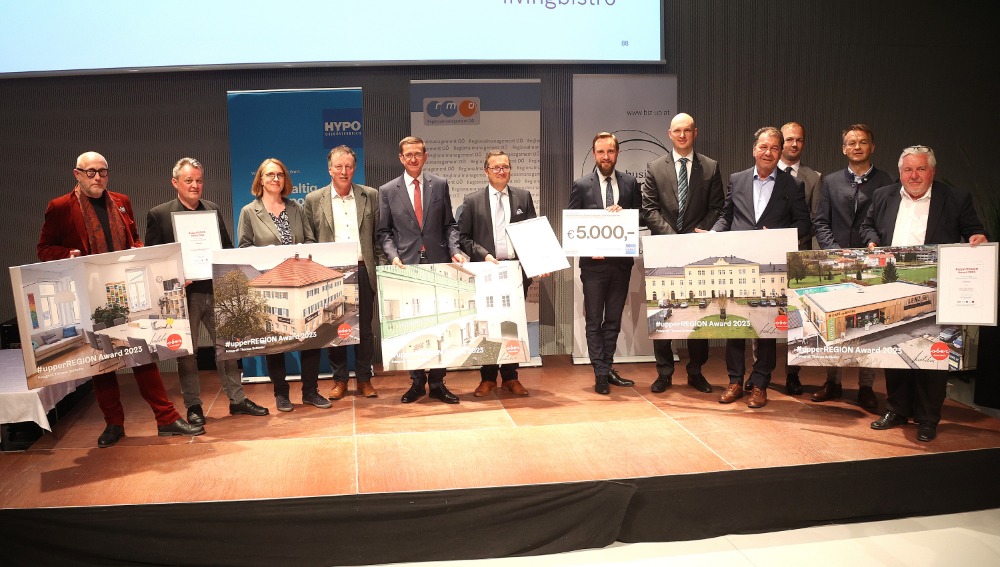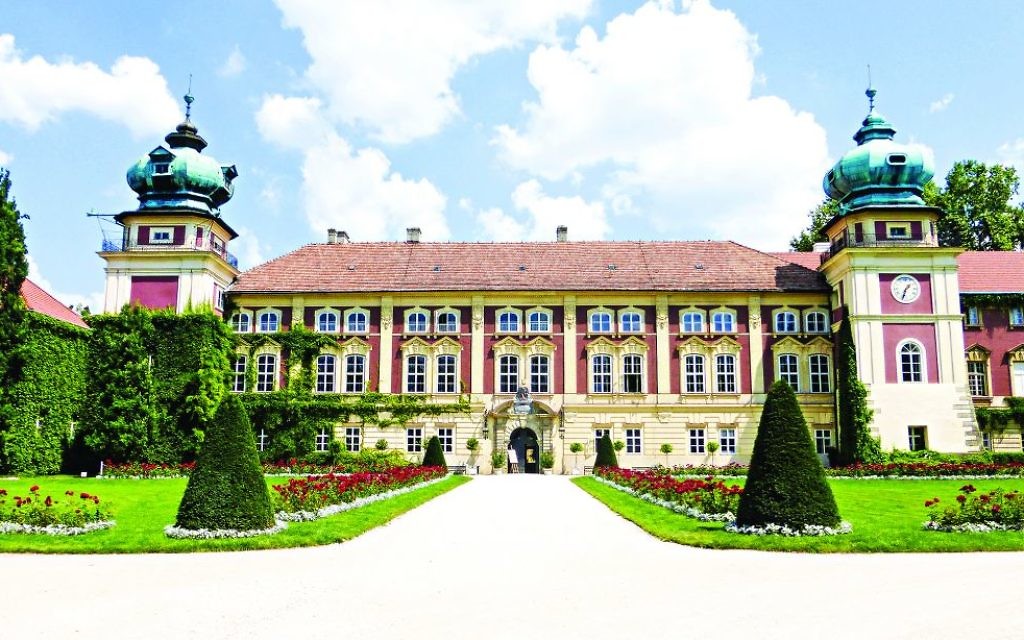After the change of regime, the private company was established in the area of international transport and became a major undertaking in the region. With his retirement, the director handed over the family business to his sons in 2003 and Galambos Trans Ltd. was established. The generational change also brought a change of approach, so the new owners focused on standing on more legs, therefore the freight transport was expanded with storage and catering, so Galambos Company Group (Galambos Trans, Logistic and Grill) was formed in 2007 and a series of large-scale investments began.
In 2007 a 2500 m² warehouse and office were built with its full equipment, as well as a truck parking and catering unit were developed. In 2011, another 2500 m² was expanded from its own resources, and in 2012 the warehouse capacity increased to 7500 m² (GOP-2009-3.2.1 Logistics centres and services) with EU support of around 250 million HUF (cc.70.000 EUR). In 2014, a further 150 million HUF (41.000 EUR) grant was won for the construction and acquisition of assets of 6000 m² hall (GOP-2012-2.1.1-12/B Complete enterprise technology development for SMEs).
In phases 6 and 7, the storage capacity increased by another 4800-4800 m², so by 2019 it will store and manage its customers’ stock in a total of 23.100 m². With a turnover of 3,6 billion HUF (10million EUR) and more than 200 employees, it has become a major enterprise in the region. The company is also indirectly involved in shaping the economy of Vas County - the managing director is an active member of the Board of the Chamber of Commerce and Industry, and aims to create a chamber strategy based on foreign experiences and can provide effective support to local SMEs. In addition, the company also operates as a training place, providing practical opportunities for many educational institutions.

In view of the future of the group, it is crucial that a significant part of the current customers is automotive manufacturers – mainly multinational companies – or related suppliers, thus with the transformation of the sector (production of electric powered vehicles instead of internal combustion engine) the company will face serious problems, which can also lead to job redundancies. At the end of 2019, one of the largest customers cancelled their contract one day to the next, resulting in nearly 100 people’s jobs in jeopardy, warehouses left empty and the existing car fleet, specially designed for the client’s products, remained unassigned. This unfortunate situation led to the start of customer diversification (e.g. the Central European distribution centre of the shoe factory), which multiplied the demand for services. Survival succeeded, but they have seen that long-term survival should be placed on a more secure basis. In view of the above case and global trends, the group is preparing a large-scale investment project to create an intermodal service centre, which will be a railway-connected logistics centre for a large company focusing on the development and production of powertrains of electric vehicles, which is one of the largest employers in Szombathely City.
This example shows that flexible adaptation to the economic environment is the key to success.
The rational use of available resources, even by supporting the flexibility of a single company - as in this case -, helps the region to adapt to the changed economic circumstances, thereby indirectly supporting economic restructuring. Flexible company – political support – public instrument – business support are equally needed for building regional resilience.
For further information on “Story of a local company in logistics” [email protected], Director, Pannon Business Network www.pbn.hu and www.galamboslogistic.hu


